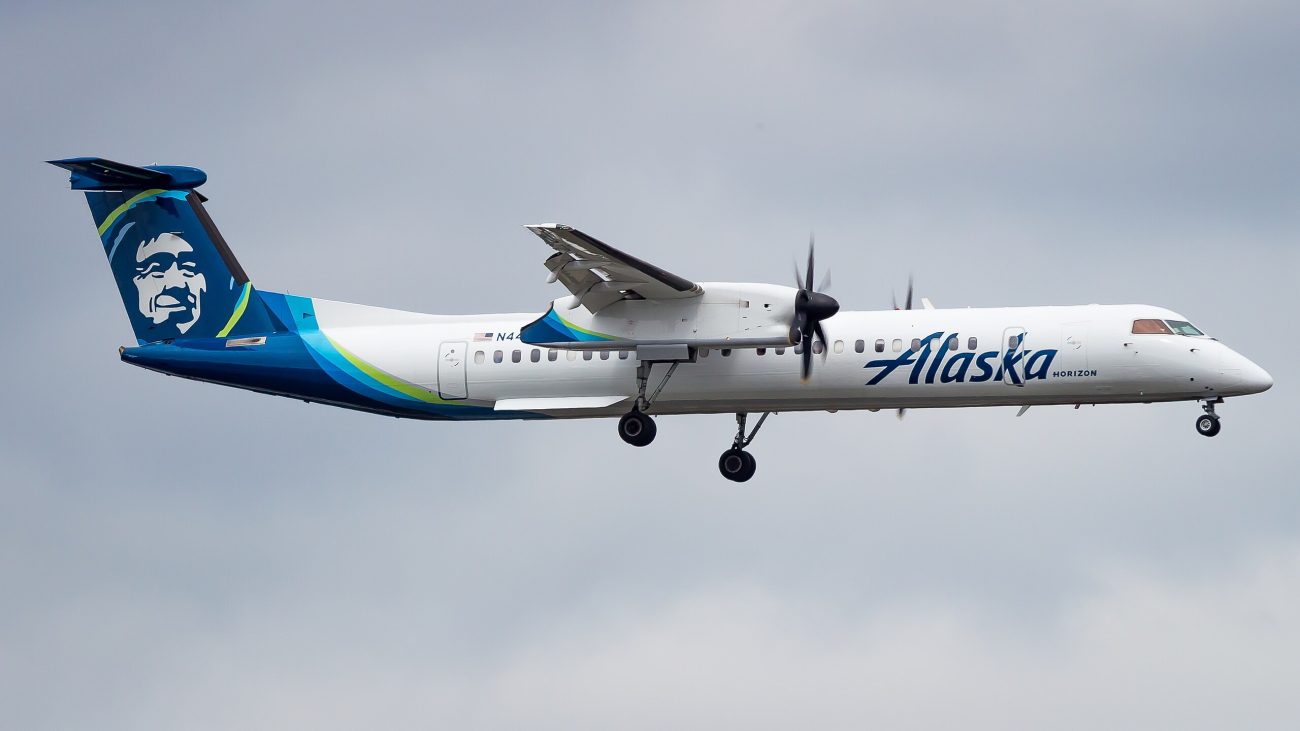About seven years ago, a ground service worker at an airport in Seattle did the unthinkable: he stole an aircraft and took it to the skies without any prior flying experience. The bizarre incident earned him the moniker of ‘sky king’, but this pilot never flew again.
Richard “Beebo” Russell, a 28-year-old ground service agent employed by Horizon Air (a subsidiary of Alaska Airlines) at Seattle-Tacoma International Airport, stole a passenger aircraft on August 10, 2018.
This was unprecedented because Russel did not have a pilot’s license, had never flown an aircraft in his life, and wasn’t legally authorized to fly a plane.
The plane in question was a Bombardier Q400, manufactured by Bombardier Aviation in 2012, used by Alaska Airlines, and registered as N449QX. The aircraft arrived at the Seattle-Tacoma airport at around 13:30 local time after completing an in-service flight from Victoria, British Columbia. It was not supposed to take off again that day.
Russell was on his shift when the Q400 aircraft landed at the airport on the day of the incident. He used his credentials to access the aircraft around 19:19.
He illegally taxied the aircraft to runway 16C. During this time, the Sea-Tac air tower repeatedly asked him to identify himself, but got no response. Russell initiated takeoff, with nearby Alaska Air Lines pilots noting that the wheels were smoking.
Russell had basic knowledge from his job, but he had never flown a real aircraft beyond his video games. For him, this was supposed to be a joy ride, and he decided to make the most of what he had. He flew over the Olympic Mountains, Mount Rainier, and Puget Sound for seventy-three minutes.

Experts said that despite his inexperience, he did aerobatic manoeuvres like the loop, which involves pulling the aircraft’s nose up to climb in a vertical circle, becoming inverted at the top, and then descending to finish the 360-degree turn in the vertical plane.
It is still unknown how Russell learned these skills without any flying experience. He also conducted a barrel roll, which involved recovering ten feet over the water.
Between 19:32 and 20:46 local time, two US Air Force (USAF) F-15 Eagle fighter jets from the Oregon Air National Guard were scrambled at supersonic speeds, creating sonic booms. Meanwhile, the Seattle-Tacoma airport grounded all flights.
Russell reportedly radioed ATC, sounding calm and reflective. However, his exchanges were anything but unusual and uncanny, much like that flight.
When a controller asked Russell if he needed assistance controlling the aircraft, he replied, “I don’t need that much help. I’ve played some video games before.”
Aviation journalist Jon Ostrower later noted that Russell frequently mentioned his experience with computerized flight-simulator programs, or what he called “video games.” He also asked the ATC for the GPS coordinates for the orca coordinates.
According to air-safety experts, simulator software that can run on a home computer and realistically replicate the performance of aircraft systems is widely available.
When asked to land at the Joint Base Lewis-McChord by the ATC, Russell declined the request and joked about the base wielding anti-aircraft guns. He also wondered if there would be jail time.
“This is probably like jail time for life, huh?” he was quoted as saying by some reports. One such report states that he told the ATC: “I wasn’t really planning on landing it,” he said. “I just wanna do a couple maneuvers — see what it can do before I put her down, ya know?”

Later, the Wall Street Journal published another exchange, in which Russel said, “I know how to put the landing gear down. I really wasn’t planning on landing it.” This statement suggested that he knew he was not going to survive this misadventure.
The fuel of the aircraft eventually depleted, following which Russell intentionally crashed into Ketron Island’s woods, destroying the plane. The site was remote, and he was the only casualty of this accident.
“I’ve got a lot of people who care about me. It’s going to disappoint them to hear that I did this,” were his last words to the ATC.
The Aftermath
This was one of the most serious domestic airline security breaches since the 9/11 terrorist attacks, and the fact that it was done by an unassuming ground staffer employed by the very airline that he stole from made it all the more intriguing.
Investigations later revealed that Russell had grown “familiar with the checklist of actions for starting an airplane.” His web search history revealed that he had been watching videos that taught him how to fly, despite having no professional aviation training.
After the incident, many questions remained unanswered. Many wondered how he managed to keep the plane in the air without any formal flight training, while others asked what would motivate him to do such a bizarre thing in the first place.
The FBI published a statement saying that the crash was intentional. “If the pilot had wanted to avoid impact with the ground, he had time and energy to pull the column back, raise the nose, and initiate a climb,” it stated.
Russell’s family expressed shock and heartbreak.
“It may seem difficult for those watching at home to believe, but Beebo was a warm, compassionate man,” the statement said. “As the voice recordings show, Beebo’s intent was not to harm anyone. He was right in saying that there are so many people who have loved him.”
The incident was believed to be a suicide. After an investigation, the Medical Examiner’s Office noted that “there is sufficient evidence to conclude that the death was intentional.”
Russell had not shown any signs of mental distress or self-harm ideation before. However, a blog that he wrote in 2017 might have hinted at an ongoing struggle.
“I never thought I would work as a Ground Service Agent (GSA) for an airline company. I always felt bad for the guys and gals who handled luggage. Every time I traveled, I would look out my plane window and see these sullen-looking individuals leisurely pacing around, or hectically throwing bags into a cart. It seemed like such miserable work, and I never could imagine why anyone would want to subject themselves to all the constant noise, gas fumes, and heavy lifting,” he wrote in that blog post.
While Russell perished in this accident, he became immortal, thanks to “Sky King” tributes on Facebook, Reddit, and YouTube.
Millions of people have viewed the audio and video of his flight. Since then, Russell is remembered every year on his death anniversary, and phrases like “Fly free, White Hawk” and “Rest in peace, Sky King” are used to portray him as a symbol of rebellion against corporate drudgery.



